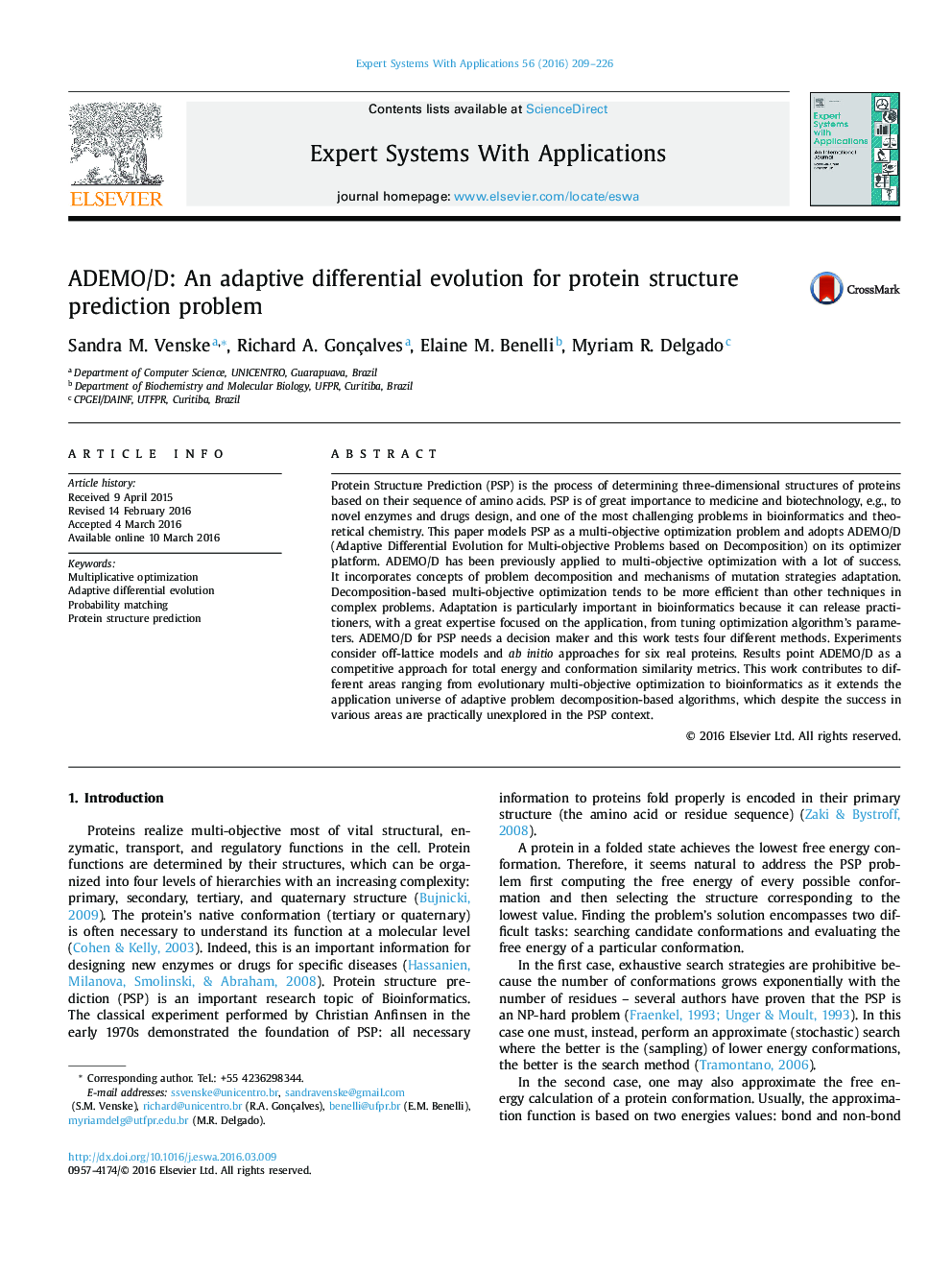| Article ID | Journal | Published Year | Pages | File Type |
|---|---|---|---|---|
| 382333 | Expert Systems with Applications | 2016 | 18 Pages |
•The paper presents an approach for continuous multi-objective optimization.•We hybridize decomposition based EMOs with adaptive operator selection methods.•We apply our approach to the protein structure prediction problem.•The paper gives special attention to the decision maker description and analysis.•The effectiveness of the proposed approach is shown on a set of six real proteins.
Protein Structure Prediction (PSP) is the process of determining three-dimensional structures of proteins based on their sequence of amino acids. PSP is of great importance to medicine and biotechnology, e.g., to novel enzymes and drugs design, and one of the most challenging problems in bioinformatics and theoretical chemistry. This paper models PSP as a multi-objective optimization problem and adopts ADEMO/D (Adaptive Differential Evolution for Multi-objective Problems based on Decomposition) on its optimizer platform. ADEMO/D has been previously applied to multi-objective optimization with a lot of success. It incorporates concepts of problem decomposition and mechanisms of mutation strategies adaptation. Decomposition-based multi-objective optimization tends to be more efficient than other techniques in complex problems. Adaptation is particularly important in bioinformatics because it can release practitioners, with a great expertise focused on the application, from tuning optimization algorithm’s parameters. ADEMO/D for PSP needs a decision maker and this work tests four different methods. Experiments consider off-lattice models and ab initio approaches for six real proteins. Results point ADEMO/D as a competitive approach for total energy and conformation similarity metrics. This work contributes to different areas ranging from evolutionary multi-objective optimization to bioinformatics as it extends the application universe of adaptive problem decomposition-based algorithms, which despite the success in various areas are practically unexplored in the PSP context.
